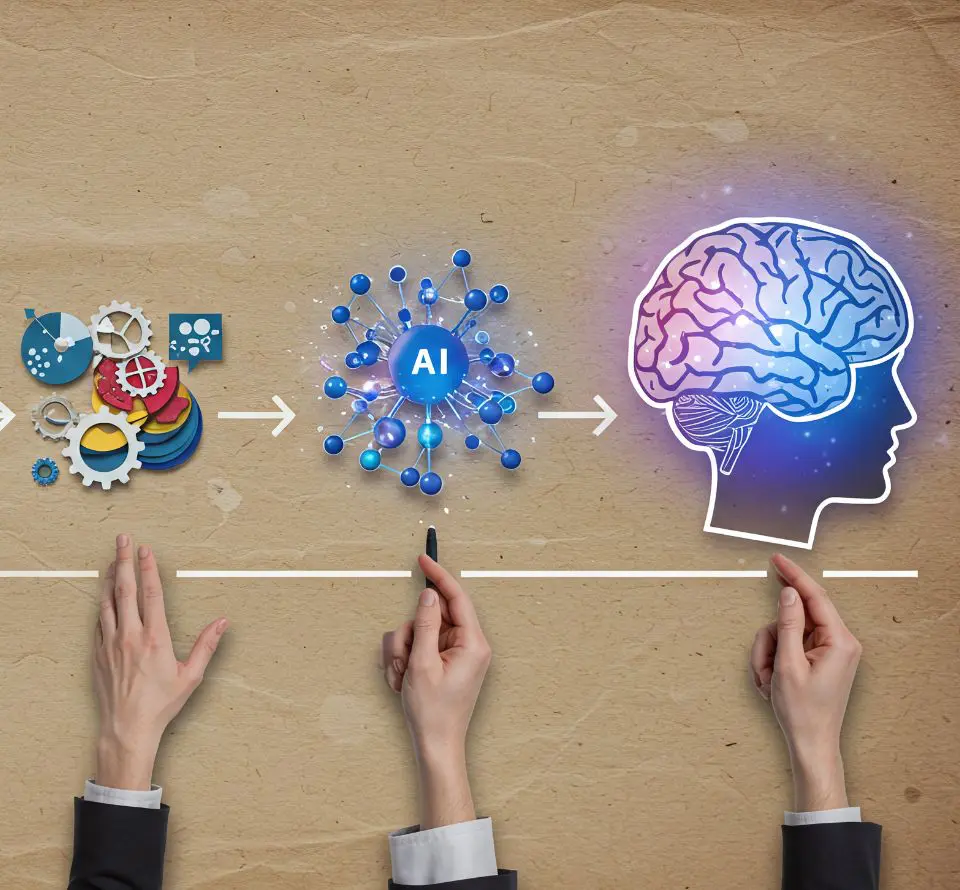Published by

AI & Emerging Technologies
The Rise of the AI-Fluent Leader: Why Every Department Needs One
 Back to Resource Centre
Back to Resource Centre

Artificial intelligence is no longer the preserve of data scientists or IT teams. It’s reshaping every corner of business – influencing how marketing connects with customers, how HR analyses workforce trends and how finance forecasts performance. Yet as AI becomes mainstream, one capability is emerging as essential for every organisation: AI fluency in leadership.
AI-fluent leaders don’t need to be coders or algorithm experts. They need to understand what AI can do, where its limitations lie and how to apply it responsibly to real-world problems. In short, they can translate technology into strategy.
*
Defining AI Fluency in Leadership
AI fluency is the ability to understand, question and use AI effectively – not at a technical level, but at a strategic and ethical one. It’s about knowing enough to ask the right questions, challenge assumptions and make informed decisions about when and how to use automation.
Just as digital literacy became an essential leadership skill a decade ago, AI literacy is now defining the next generation of business leaders. Those who understand its potential can unlock competitive advantage; those who don’t risk being left behind by smarter, faster-moving competitors.
*
Why Every Function Needs AI-Fluent Leaders
The impact of AI is no longer contained within the technology department. It is changing how every function operates:
-
HR leaders are using AI to analyse workforce skills, forecast attrition and enhance candidate experience.
-
Finance directors are deploying AI-driven analytics for predictive modelling and scenario planning.
-
Marketing teams are using AI for customer segmentation, campaign optimisation and personalised content.
Without AI fluency at the helm of these functions, organisations risk adopting tools they don’t fully understand or missing opportunities altogether. The difference between leaders who are AI-aware and those who are AI-fluent can be measured in agility, insight and strategic confidence.
*
The Skills and Mindset of AI-Fluent Leaders
AI-fluent leaders share a distinct blend of technical curiosity, ethical awareness and human understanding. Their strengths include:
-
Curiosity and adaptability: They stay informed about emerging technologies and ask how these can drive value.
-
Data-driven decision-making: They combine intuition with analytical thinking to guide strategy.
-
Communication and translation: They act as the bridge between technical teams and business stakeholders.
-
Ethical responsibility: They ensure AI is implemented fairly, transparently and in line with organisational values.
At Arc IT, we’re seeing a sharp rise in demand for leaders who can connect business vision with digital execution. These are individuals who bring not only commercial acumen but also the fluency to evaluate AI tools, interpret outputs and lead change responsibly.
*
Developing AI Fluency Across Organisations
AI fluency doesn’t develop by chance; it must be cultivated. Organisations can build this capability through:
-
Cross-functional learning: Encouraging collaboration between business leaders and technical experts.
-
Leadership development programmes: Embedding AI literacy into management training and executive education.
-
Recruitment and succession planning: Prioritising curiosity, adaptability and data literacy alongside traditional leadership traits.
-
Cultural readiness: Promoting open dialogue about the opportunities and risks of AI use across the organisation.
Arc IT and ARCselect have seen growing demand from companies seeking this new profile of hybrid leader – individuals who combine people skills with technological understanding and a responsible approach to innovation.
*
Leading in the Age of Intelligence
The future of leadership will belong to those who can guide human teams and machine intelligence in harmony. AI fluency is not about replacing people with technology; it’s about using technology to empower people and unlock new potential.
In every department, the leaders who understand AI – its promise, its pitfalls and its purpose – will define the organisations that thrive in the next decade.
As AI continues to evolve, one thing is clear: every company will need AI-fluent leaders. And every successful leader will need to speak the language of intelligence – human and artificial alike.











